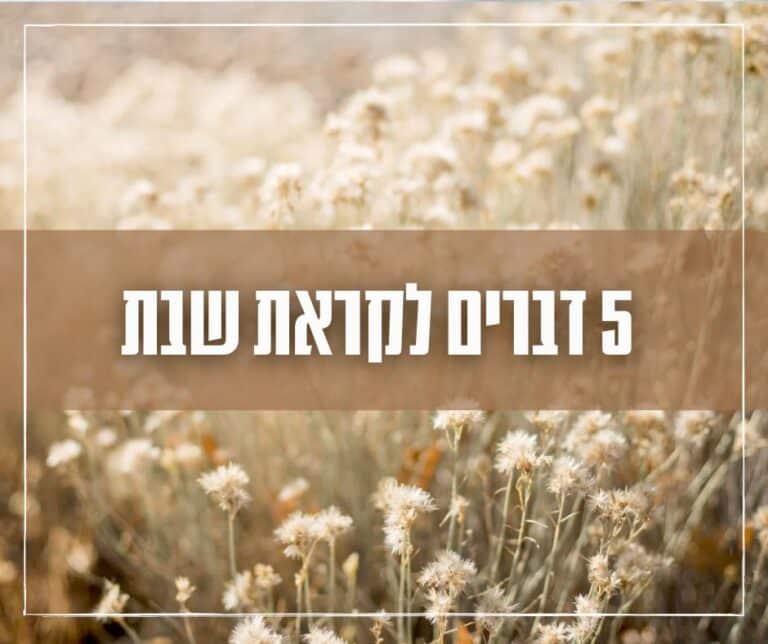Translation by Yehoshua Siskin
1. After conclusion of the Pesach holiday, we return to reading the Torah portion of the week, parashat Shemini, this Shabbat.
2. The parasha describes the inauguration of the Mishkan (sanctuary) and the death of two of the sons of Aharon HaKohen during the festivities. Aharon's laconic reaction to this tragedy, as the grieving father, is memorable as an expression of acceptance and deep faith: "And Aharon was silent."
3. The continuation of the parasha deals with the laws of kashrut. The pig is mentioned first, followed by a long list of forbidden and permitted animal foods, the latter having found their way into the Jewish kitchen for more than 3,000 years. You are not only what you think, but what you eat.
4. This Shabbat is called Shabbat Mevarchim or "the Shabbat when we bless." We always bless the new month -- in this case Iyar -- on the Shabbat that precedes the week in which the new month begins.
5. At the close of the first day of Pesach, the counting of the Omer began. It will continue until the festival of Shavuot, which celebrates the receiving of the Torah. This is a counting that continues until the arrival of the children of Israel at Mount Sinai, a 49-day process of education and personal refinement. Starting this Shabbat, it is customary each Shabbat to read a chapter of Pirkei Avot (Ethics of the Fathers). This is a tractate in the Talmud that is concerned with developing good character traits in order to be worthy of receiving the Torah. On this Shabbat, we will be counting the ninth day of Omer.
Shabbat shalom








